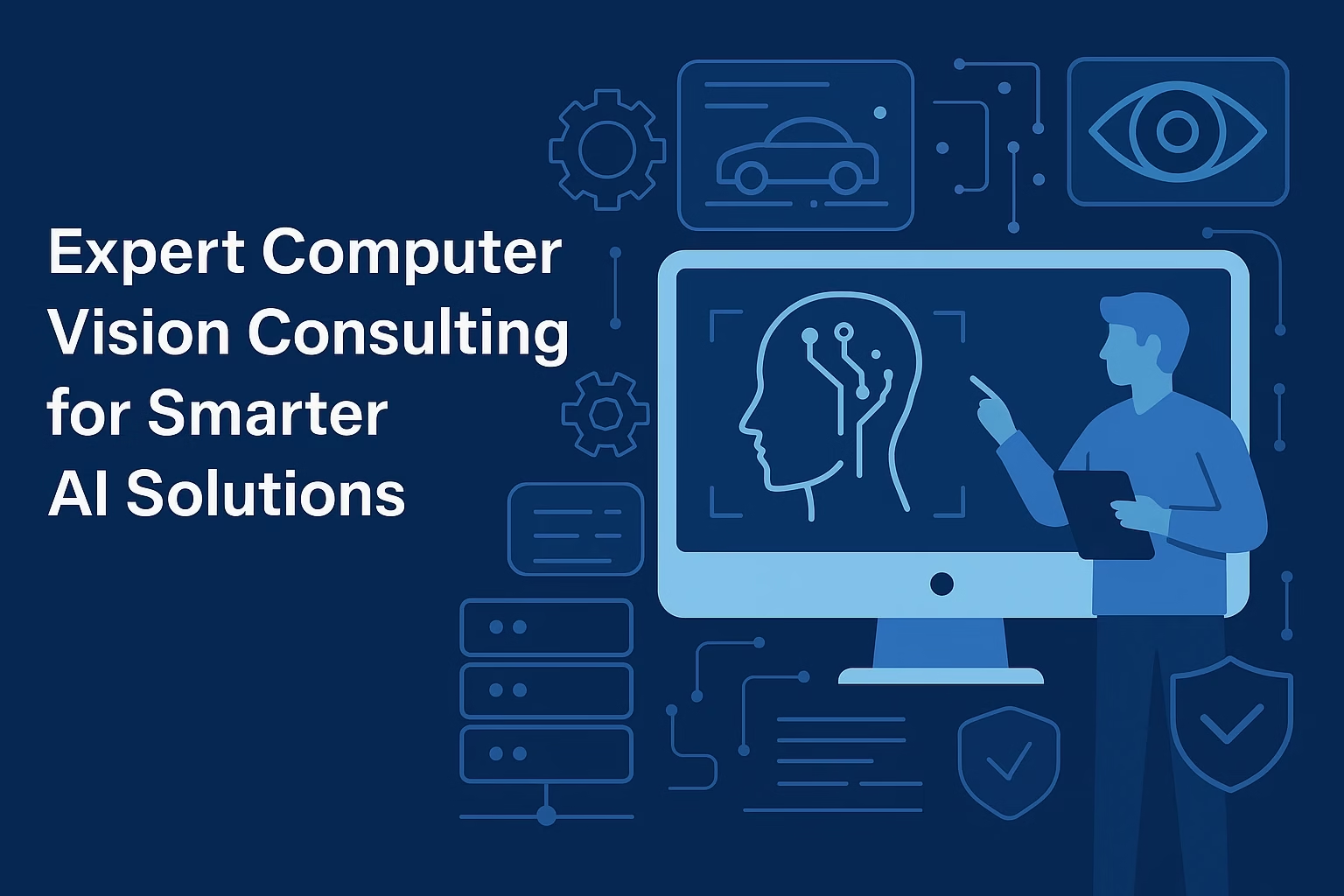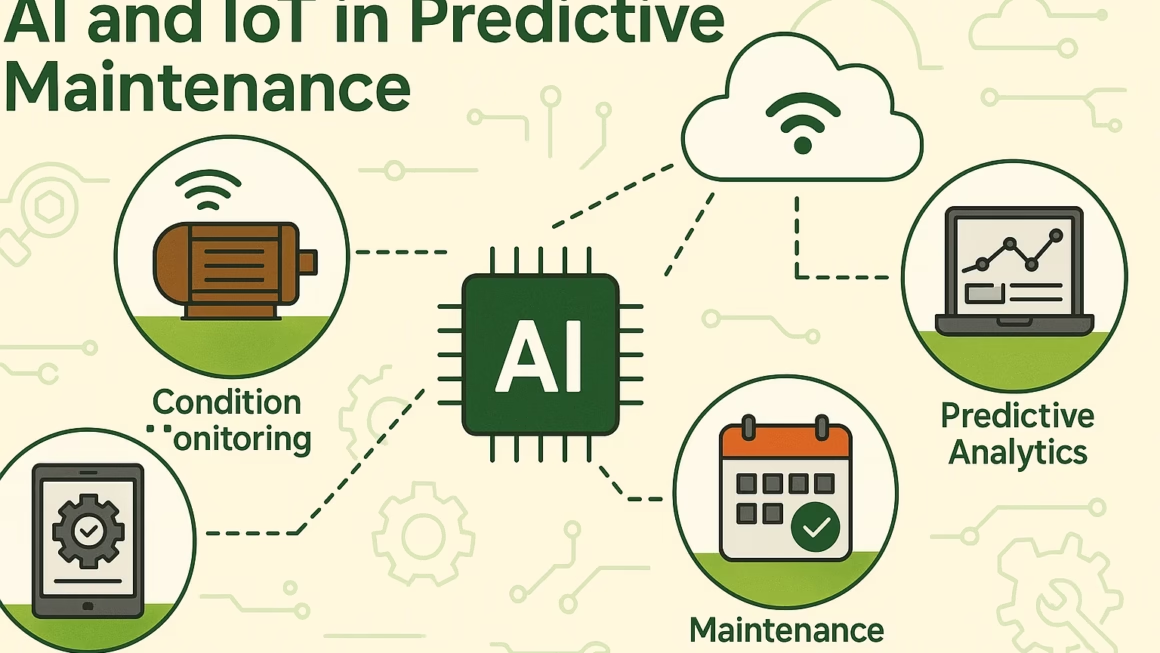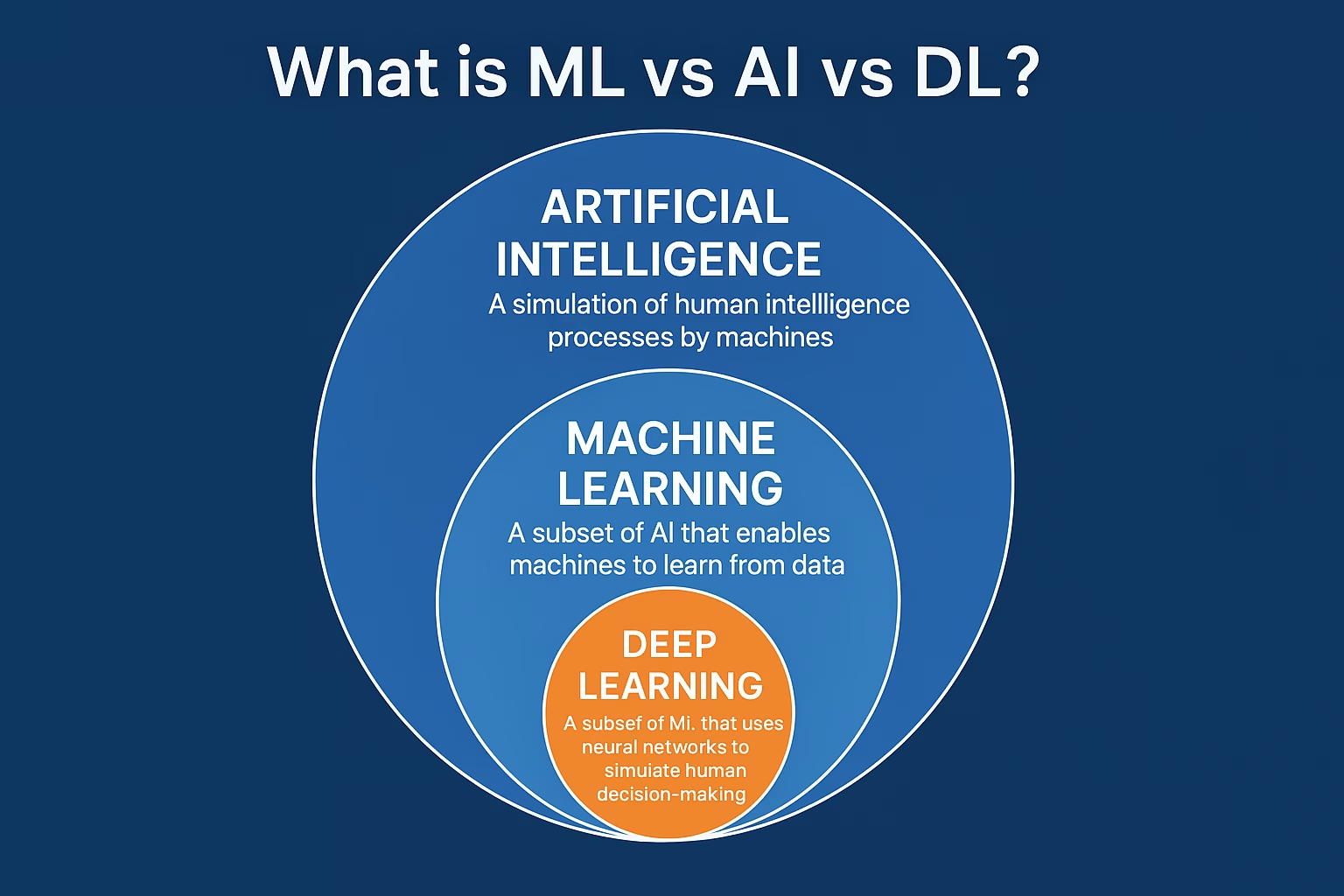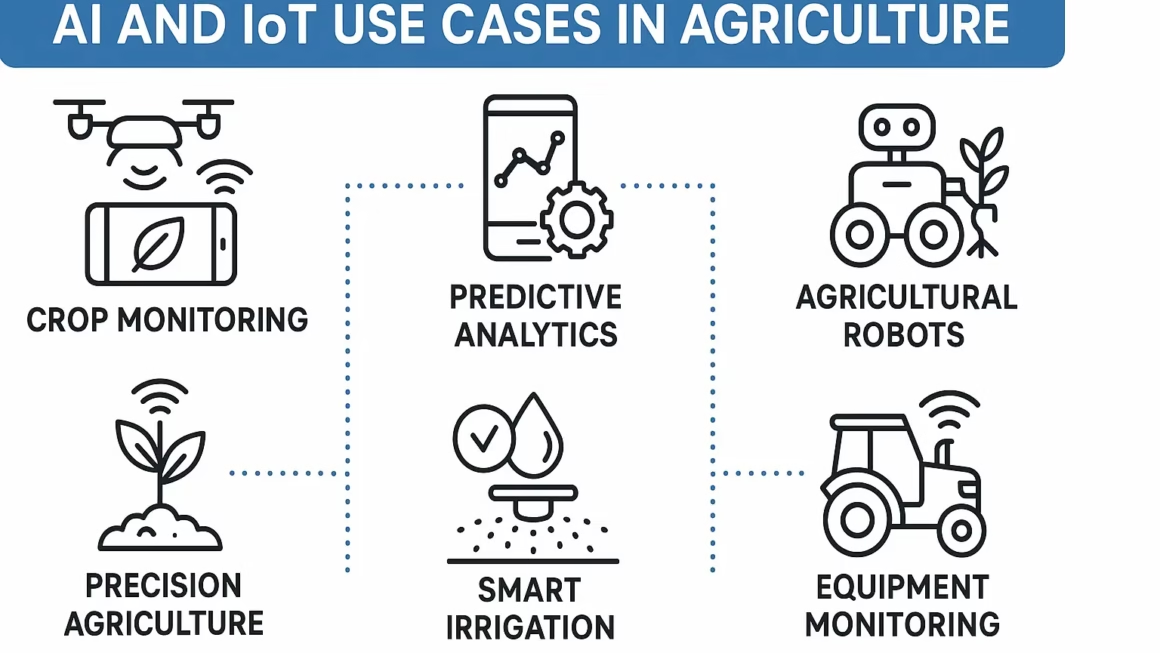Computer Vision Consulting
Introduction to Computer Vision Consulting
Computer vision consulting is the cornerstone of innovation in artificial intelligence, helping businesses leverage the power of visual data for automation, analysis, and decision-making. From facial recognition to industrial defect detection, computer vision consulting enables companies to apply cutting-edge technology and gain a competitive advantage.
As industries evolve, organizations need specialized guidance to plan, develop, and deploy computer vision systems. This is where expert consultants step in — offering tailored strategies that save time, reduce costs, and enhance operational efficiency.
What is Computer Vision Consulting and Why It Matters
Computer vision consulting involves guiding companies through the planning, development, and implementation of AI-driven image and video analysis systems. Consultants analyze the business’s needs, determine the right computer vision solutions, and help integrate them with existing workflows and platforms.
The importance of computer vision consulting lies in its ability to mitigate project risks, reduce development costs, and accelerate deployment. Many businesses fail in AI initiatives due to lack of experience, poor data strategy, or flawed models. With expert consulting, these challenges are anticipated and addressed early in the development lifecycle.
Computer vision consultants also provide expertise in model training, dataset curation, hardware selection, and system optimization. Whether it’s a retail business using CCTV analytics or a manufacturing plant detecting defects on an assembly line, consultants tailor vision systems to each client’s specific needs and technical infrastructure.
How Computer Vision is Revolutionizing Industries
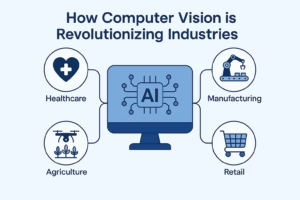
Computer vision is changing how businesses operate across healthcare, manufacturing, agriculture, retail, logistics, and more. With computer vision consulting, companies gain insight into where AI-powered vision can be best applied to achieve measurable results.
In healthcare, computer vision aids in diagnostics, such as identifying tumors in radiology images or tracking patient behavior in eldercare facilities. Manufacturing plants use it for real-time defect detection, reducing waste and improving quality control. Agriculture uses drone-based vision systems to monitor crop health, predict yield, and detect diseases early.
Retailers enhance customer experience using facial recognition, shelf monitoring, and heat maps to understand foot traffic. Meanwhile, logistics companies use object recognition and tracking to streamline warehouse management, loading, and delivery operations. With a skilled consultant, these systems go from concept to production much faster, with fewer errors and a higher ROI.
Key Steps in a Successful Computer Vision Strategy
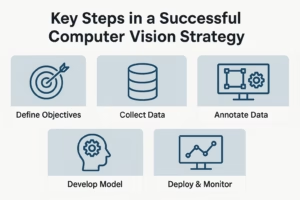
A solid computer vision strategy is essential for long-term success. Computer vision consulting services follow a structured approach that typically involves:
1. Needs Assessment and Feasibility Study
This initial step determines if computer vision is the right solution for the business problem. Consultants assess the use case, required accuracy, available data, and expected ROI. This step saves valuable resources by ensuring viability before full development.
2. Data Collection and Annotation
High-quality data is the fuel of any AI system. Consultants help businesses gather relevant image or video data, and annotate it using tools or services that label objects, scenes, or patterns necessary for model training.
3. Model Selection and Training
Consultants select or build models based on the problem’s complexity and resource constraints. Options range from pre-trained models to custom deep learning architectures. They also set up training pipelines, test for overfitting, and iterate to improve accuracy.
This structured approach ensures that vision systems are not just technically sound but also aligned with business goals and budget.
Benefits of Hiring a Computer Vision Consultant
Hiring a computer vision consultant offers a wide range of benefits for businesses of all sizes.
1. Domain Expertise and Experience
Consultants bring deep expertise and cross-industry experience, offering insights into what works and what doesn’t. This shortens the learning curve for businesses and avoids common pitfalls.
2. Faster Time to Market
With established best practices, toolkits, and processes, consultants can rapidly prototype and deliver minimum viable products (MVPs), reducing time to market significantly.
3. Risk Mitigation
AI projects often suffer from scope creep and unrealistic expectations. Consultants use KPIs and benchmarks to set realistic goals and timelines, reducing project risk and ensuring accountability.
Additionally, consultants often provide support in integrating vision systems with IoT devices, cloud platforms, or enterprise software — ensuring smooth deployment and scalability.
Challenges in Computer Vision Projects and How Consultants Solve Them
Despite its potential, computer vision poses several challenges that a consultant can help overcome:
1. Data Scarcity or Bias
Many projects fail due to insufficient or biased data. Consultants recommend synthetic data generation, data augmentation, or domain adaptation to overcome such limitations.
2. Hardware Constraints
Running complex models on edge devices or within real-time constraints requires optimization. Consultants help select the right GPUs, FPGAs, or edge processors, and apply quantization or pruning techniques for efficiency.
3. Integration Complexity
Computer vision solutions need to be integrated with existing IT systems such as ERP, CRM, or IoT platforms. Consultants design APIs, microservices, or middleware to ensure seamless interoperability and data flow.
Overcoming these hurdles early through expert consulting prevents costly rework and improves adoption within the organization.
Choosing the Right Computer Vision Consulting Partner
The success of your AI initiative often hinges on selecting the right consulting partner. Here are some key criteria to consider:
1. Portfolio and Use Cases
Look for consultants with proven experience in your industry. Ask for case studies or client references to validate their capabilities.
2. Technical Depth
The consulting firm should demonstrate expertise in machine learning frameworks (like TensorFlow, PyTorch), deployment tools (Docker, Kubernetes), and data labeling platforms. They should also be comfortable with edge computing and cloud platforms (AWS, Azure, GCP).
3. Communication and Support
A great consulting partner will collaborate closely with your team, provide regular updates, and offer post-deployment support. Clear documentation and training resources should also be part of the engagement.
Making the right choice sets the stage for smooth implementation, reduced risk, and long-term ROI from your computer vision systems.
Frequently Asked Questions (FAQs)
1. What industries benefit most from computer vision consulting?
A: Virtually all industries can benefit, but key ones include healthcare, manufacturing, agriculture, logistics, retail, automotive, and security. Consultants help tailor solutions to each vertical.
2. How long does a computer vision project take from start to finish?
A: Timelines vary depending on complexity, but with expert consulting, MVPs can often be delivered within 2–3 months, with full deployment in 4–6 months.
3. What kind of data is needed for computer vision projects?
A: Typically, high-quality labeled image or video data. Consultants can help create or source this data, and often use data augmentation or synthetic generation to improve datasets.
4. Can computer vision systems run on mobile or edge devices?
A: Yes, consultants can optimize models to run on smartphones, Raspberry Pi, Jetson Nano, or other edge devices using techniques like quantization and pruning.
5. What is the cost of computer vision consulting services?
A: Costs vary depending on project size and scope, but most consultants offer flexible pricing — hourly, per project, or ongoing retainer. ROI often justifies the investment.
Conclusion
Computer vision consulting is the bridge between business goals and successful AI implementation. By working with experienced consultants, companies can transform visual data into actionable insights, streamline operations, and unlock new revenue streams.
Whether you’re just starting your AI journey or scaling an existing system, investing in expert computer vision consulting is a strategic move that pays dividends.
